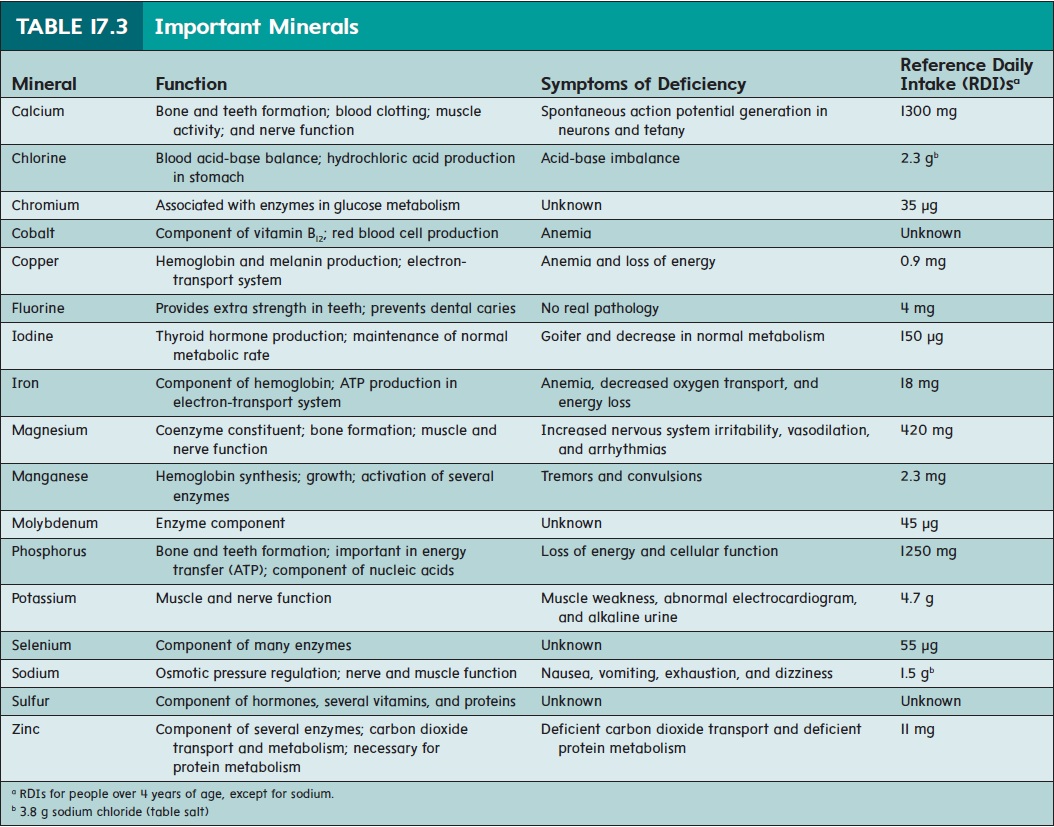Chapter: Essentials of Anatomy and Physiology: Nutrition, Metabolism, and body Temperature Regulation
Minerals - Human Nutrition
Minerals
Minerals (min′er-ălz) are inorganic nutrients that are essential fornormal metabolic functions. People ingest minerals alone or in combination with organic molecules. They constitute about 4–5% of total body weight and are involved in a number of important functions, such as establishing resting membrane potentials and generating action potentials; adding mechanical strength to bones and teeth; combining with organic molecules; and acting as coen-zymes, buffers, or regulators of osmotic pressure. A balanced diet can provide all the necessary minerals, with a few possible

exceptions. For example, individuals suffering from chronic bleeding or women who experience excessive menstrual bleeding may need an iron supplement. Table 17.3 lists some minerals and their functions.
Related Topics